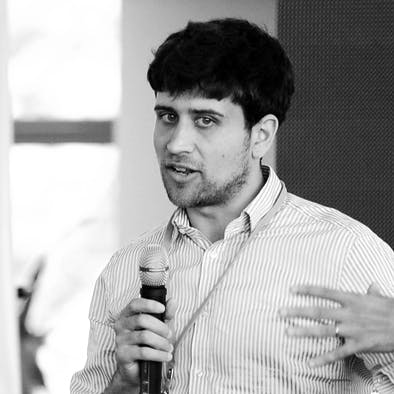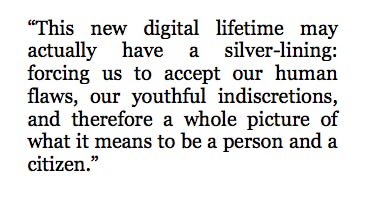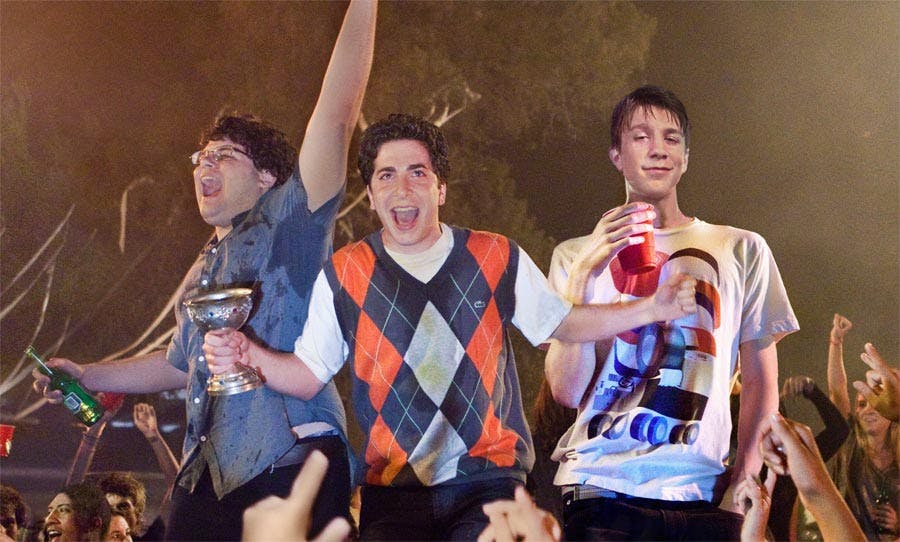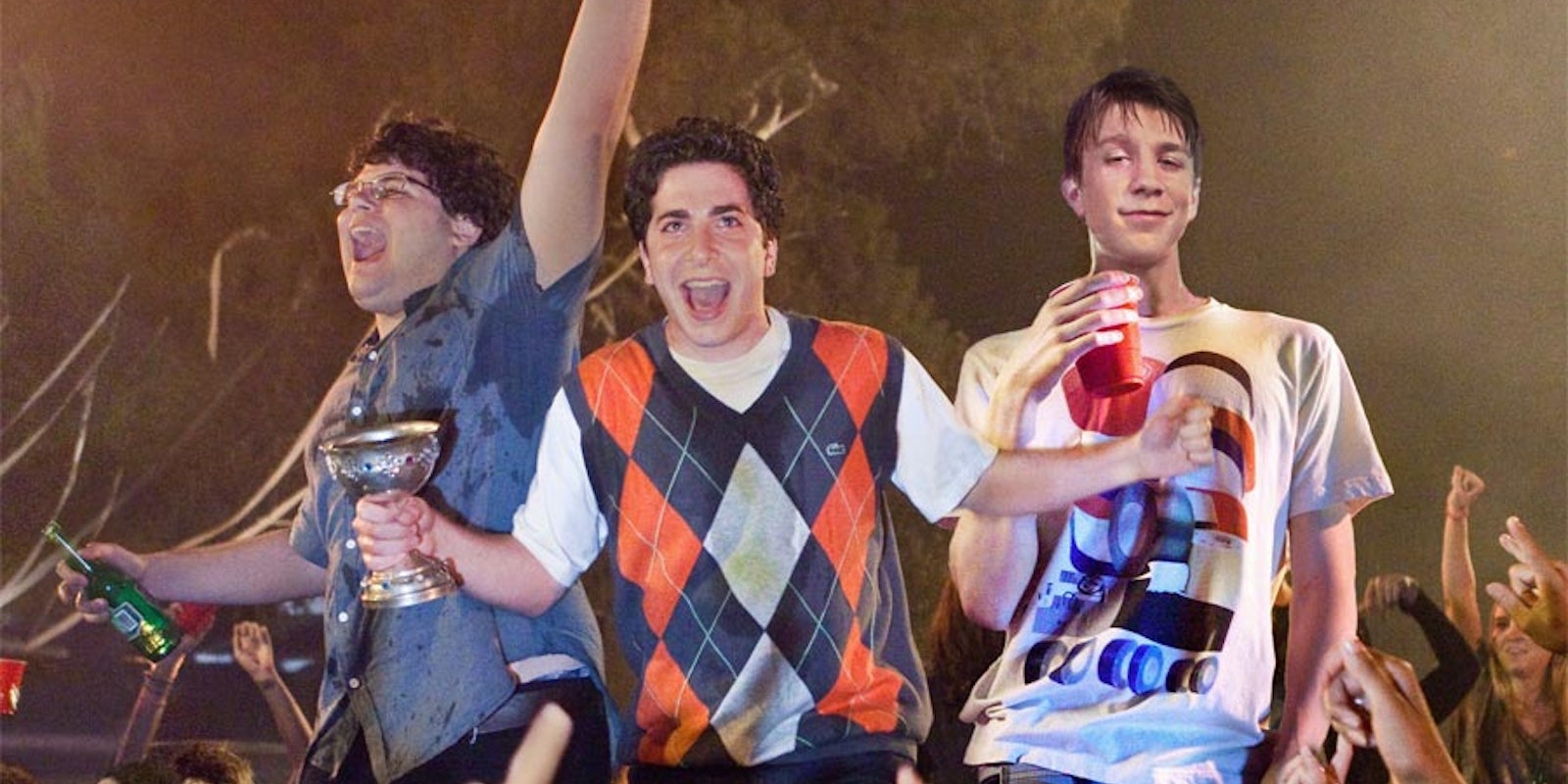
Chris R. Albon is a political scientist and writer on the global politics of science and technology. Presently, Chris leads the Governance Project at FrontlineSMS. Prior to FrontlineSMS, Chris earned a Ph.D. in Political Science from the University of California, Davis.
This election, perhaps more than many in recent history, has gotten personal. Of course, all campaigns look to frame their opposition in a negative light. But this one in particular has focused on non-policy issues. And although we all delight in these gory tidbits with a kind of trainwreck fascination, it does make one stop at think, at some point, what skeletons in the closet you would not want aired.
One of my first contributions to the Internet was a short story I wrote in middle school. Thankfully, apart from butchering the English language, it is harmless. However, I am certain that, if one were so inclined, it would be possible to dig up many of my nastier contributions, from rants on Everquest’s forums (I, not II) to petty insults on IRC (if you were on EFnet in the late 90s, my apologies). In all likelihood, it would be easy to compile a catalog of my worst moments online.
This task would be even easier for the “Internet generation,” those born in the late ‘80s and early ‘90s whose entire social lives have been inexorably intertwined with—and recorded on—the Web. Given the sheer amount that this generation’s life is conducted online, I’m guessing very few could claim to have never posted comments harmful to others or photos they’d rather not let their parents, let alone employers see. So, what happens when —in the coming years— they start running for office?
Two trends in modern society are heading for a collision course. First, we are increasingly invited to judge political candidates on their personal lives — both past and present. In 1992, Clinton faced a storm of criticism when he admitting to experimenting with marijuana while a student in England. Don’t worry though, he didn’t inhale.
In May, Romney was in hot water over a Washington Post report about an instance of him viciously bullying another student while in prep school in 1965. In June, PBS interviewed a classmate of Obama about her memories of him. The interview was picked up by The Blaze, a conservative blog, which published a post titled “Obama’s Former Classmate: ‘He Told Us That His Father Was an Indonesian King,’ That ‘He Was a Prince’ & ‘Would Be a Ruler’.” When Obama made these comments, he was ten years old.
Romney’s behavior was reprehensible, and Obama’s was silly, but their mistakes (respectively, as a teenager and an elementary school kid) are also a weak basis to judge either of them as a candidate for the presidency almost half a century later. As a society, we have set ourselves up for a dangerous precedent by demanding that our candidates have lived impossibly moral existences. We are not only voting on who they are but who they were growing up, and have created an environment where moments of not only teenage but childhood stupidity can be used against candidates decades later.
Second, we are raising a generation whose lives are laid bare online. With relatively little concrete information, it is possible to gather huge swaths of a person’s online social life, from tweets to Facebook posts to Instagram photos. With that comes a dark side, the ability to see glimpses of an individual’s life they might rather you not—particularly later in life. Mean-spirited taunts on Xbox Live. Ghost riding the whip. Smashing mailboxes. With advances in automated and crowd-sourced facial recognition, individuals do not even have be actively involved in posting the information online for it to be attached to their name.
Every photo at a high school party captures not only underage drinking but also potential future political candidates breaking the law. It is only a matter of time before voters will have access to every post, comment, tweet, photos, and who knows what else still to come, able to poke around in all the conversations and documentation of a candidate’s lifetime.
So we are left in a difficult place, where we demand that our candidates maintained impossible levels of moral purity yet live in a world where our imperfections are easier than ever to find. Where does this leave us? Online reputation cleaners like Reputation.com and RemoveYourName are certainly going to be growth industry. However, their ability to give people an online “clean slate” is pretty minimal, limited to manipulating search results pages and pressuring sites to remove pieces of content. These services can only protect someone from a cursory investigation (say, from a potential employer), not professional opposition research. Thus, as Reputation.com (somewhat ironically) states on their website: “The Internet never forgets.”
No matter how we may choose to try and protect our data, we are now living online, Generation Internet more than any of us. As is always the case, running for politics will out your mistakes, and it is inevitable that there will now be more mistakes to find than ever. But this new digital lifetime may actually have a silver-lining: forcing us to accept our human flaws, our youthful indiscretions, and therefore a whole picture of what it means to be a person and a citizen—not an idealized, unsustainable ideal of one, a Potemkin candidate. Our failure to hide our information could be the very thing that forces us to focus on what matter in politics, and ignore what does not.
Political campaigns are not going away, and neither is the human tendency to make mistakes, and having moments we would rather not become public—it’s how we learn. Making those moments easier to find could be a good thing. When every politician has a lifetime’s worth of tweets and posts, rants and raves, photos and live-streams exposed to each voter, we might well be more forgiving for the mistakes of youth and focus on more important matters: their policies and ability to govern. With luck, when those moments become so easy to find that we realize how ubiquitous and ultimately unimportant they are, we will give up the illusion that any candidate can have lived an entirely upstanding life, never had a blunder, never tried something they shouldn’t have, never made a joke in bad taste. We might start accepting that they were—like all of us—once children.
We will always demand that our politicians be the best of us, but perhaps when we are inundated in the mistakes we all make, we will start accepting them as part of us—flaws and all.
Photo via Jo Reviews
